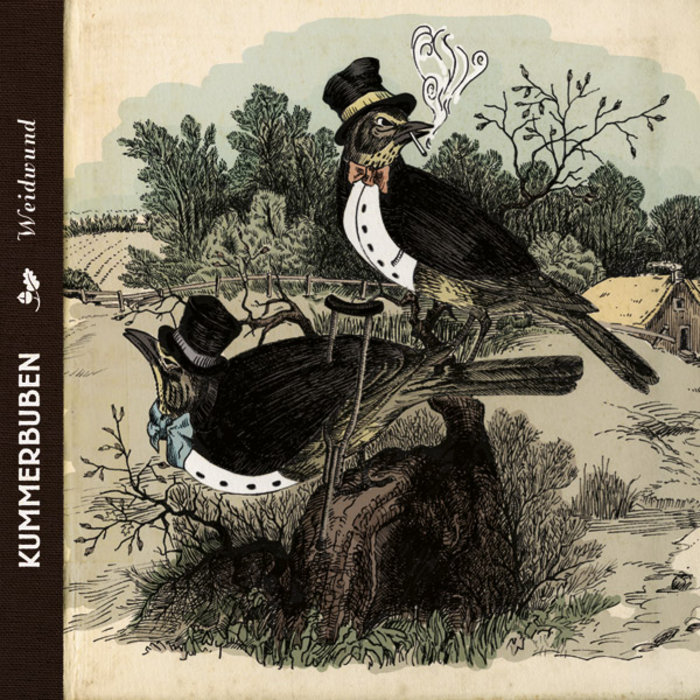
Helde vom Dorf – Kummerbuben
this blog is GROOVY – check out great Soul, Funk, Jazz, Hip Hop, Bass, Breaks , Reggae, House n many more TUNES
Alternative folk, also known as “folk rock” or simply “indie folk,” is that sweet spot where tradition meets experimentation. Think of it as the lovechild of classic folk music and the vibrant energy of modern indie vibes. It’s a genre that embraces storytelling, raw emotions, and a sprinkle of quirkiness. So grab your acoustic guitar (or whatever instrument you fancy), kick back in your favorite cozy corner, and let’s dive into the groovy history of alternative folk!
The roots of alternative folk can be traced back to the 1960s when artists began blending traditional folk sounds with other genres. Bob Dylan was one of those pioneers who helped bridge this gap—his electric turn at the Newport Folk Festival in 1965 sent shockwaves through the music scene. People were like, “What? Electric guitars?! This isn’t how we do it!” But hey, change is groovy!
Through the late ’60s and into the ’70s, bands like Simon & Garfunkel and The Byrds brought harmonies infused with rock elements to mainstream audiences while keeping their foot firmly planted in rural folklore.
Fast-forward to the 1990s—the decade where everything changed! Grunge ruled supreme but nestled comfortably alongside up-and-coming indie labels was a wave of alt-folk artists making waves with their unique tunes.
Artists like Elliott Smith brought a darker twist to folky melodies while still feeling incredibly relatable—like he was singing right outta your diary! And then there were legends like Iron & Wine and Sufjan Stevens whose whiskers tickled our heartstrings with layered arrangements that felt both intimate yet grand.
Funny fact: did you know Sufjan Stevens almost named his album “Greetings from Michigan” something completely absurd? He considered calling it “I’m Not Trying To Make You Cry”—talk about an honest title!
With each passing year through the early 2000s, independent labels exploded onto the scene; think Sub Pop or Saddle Creek Records! What emerged? A whole new generation embracing DIY ethics mixed with heart-wrenching lyrics straight from life’s handbook.
Groups such as Fleet Foxes brought harmony-laden soundscapes reminiscent of old-timey barn dances—but make it hipster chic! You could hear hints of bluegrass mixed within their songs while simultaneously being transported to an enchanted forest full of magical creatures (okay, maybe just squirrels).
And who could forget Feist’s breakout hit “1234”? Its catchy vibe became synonymous with every feel-good moment imaginable—it even graced Apple’s iPod commercials because why not go for instant fame?
When talking about alternative folk musicians’ personalities—and boy oh boy are they quirky—you’ll find plenty worth chuckling over:
Devendra Banhart – Known for his eclectic style both musically and sartorially (“Is he wearing pajamas?”). Devendra once got kicked outta a bar for standing on tables singing about rainbows while sporting DIY fairy wings!
Regina Spektor – This Russian-born songstress has been captivating listeners since her debut album dropped way back when (2003!). She gained some attention after she literally sang her grocery list during one performance… I mean who hasn’t sung along whilst combing through produce?!
Hozier – We all swooned over him after “Take Me To Church,” but here’s something funny: Hozier once dressed up as a giant croissant for Halloween—a pun-lover’s dream come true!
The Tallest Man on Earth – Kristian Matsson doesn’t just have an amazing voice; he’s also confirmed that growing up hearing Joni Mitchell made him consider going by “The Shortest Man on Earth”—guess he figured marketing would work better if people didn’t focus too much on height!
As we hopped into more recent years (hello TikTok fame!), alternative folk continues evolving without losing its core essence—a community vibe filled with genuine emotions woven throughout each note played.
Newer acts like Florence + The Machine mix haunting vocals paired alongside bright arrangements leading themselves right back down memory lane—while still exploring new territories ripe for discovery!
Check out artists such as Phoebe Bridgers or Julien Baker—these gals are killing it now showing us deep lyricism combined effortlessly with stripped-back instrumentals… plus they’ve got some killer stage presence which definitely adds extra magic onscreen!
So here we are today celebrating this beautiful tapestry known as alternative folk—a mishmash blend bringing together stories from yesteryear topped off by modern twists sure to captivate any listener lucky enough eavesdrop upon its harmonious melodies.
From Bob Dylan shocking conservative fans playing electric riffs amidst swaying crowds across decades ago till now watching young stars rise—they all share one common thread revolving around inspiration stemming personal tales wrapped snugly inside catchy hooks ready play again & again forevermore!
In essence? Keep strumming those strings folks & remember… life may throw curveballs but singin’ always makes things brighter—even if it’s off-key sometimes sprinkled humorously silly anecdotes along way too create memories laughter won’t soon forget!

Helde vom Dorf – Kummerbuben